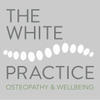What you need to know about Vitamin C, and let's make sure that you are really getting enough.
Modern science is still researching the vast array of benefits of vitamin C and it seems that Linus Pauling, a controversial Nobel prize winning scientist, was right all along. His studies using large quantities of vitamin C with patients who were suffering from severe conditions such as cancer and heart disease, showed a reversal of the disease.
Ten years after his death his work is on the way to vindication and the weight of evidence may yet force the medical establishment to accept his ideas. Deficiency signs and vitamin C:
To get enough we need to look at the way these foods are grown, stored and cooked, but also weigh our bodies needs against our intake, if an individual has any form of disease, disorder or smokes then this will increase the need to supplement to enable the correct amounts to be beneficial.
For further information please speak to Ruth Holmes.
Modern science is still researching the vast array of benefits of vitamin C and it seems that Linus Pauling, a controversial Nobel prize winning scientist, was right all along. His studies using large quantities of vitamin C with patients who were suffering from severe conditions such as cancer and heart disease, showed a reversal of the disease.
Ten years after his death his work is on the way to vindication and the weight of evidence may yet force the medical establishment to accept his ideas. Deficiency signs and vitamin C:
- Fatigue, experiencing reduced levels of energy
- Mood changes, becoming short tempered and irritable
- Bruising easily
- Dry hair/skin, a change in hair condition can be due to a lack of vitamin C.
- Infections/low immunity, lack of vitamin C can have a negative effect upon the efficiency of immune response, and wound healing and scar tissue fading will be slower.
- Dental conditions, gingivitis (bleeding gums) sore tongue, mouth ulcers.
- Joint and muscle aches, dull chronic pains can be a deficiency sign.
- Stress, the adrenal glands use up a lot of vitamin C to produce adrenaline and cortisol, so the higher the level of stress the higher amount needed.
- High cholesterol levels, this vitamin helps to lower the high density cholesterol level in the body, by converting it into bile salts that can then be excreted from the body.
- Heart conditions, vitamin C has excellent antioxidant properties so that it will scavenge free radicals - that damage cell walls increasing the risk of blood vessel, stroke and heart disease.
- Diabetes, it helps to regulate blood sugar levels.
- Cancer, in the last ten years there were numerous clinical studies on this subject.
- Asthma, being an anti oxidant and antihistamine it works well with any inflammation within the body.
- Cataracts, vitamin C plays an important role in improving vision.
- Oxidative damage and the resultant inflammatory changes are known to be root causes of most common chronic conditions in humans.... and vitamin C is essential for every cell in the body, it's repair and body chemistry balance.
To get enough we need to look at the way these foods are grown, stored and cooked, but also weigh our bodies needs against our intake, if an individual has any form of disease, disorder or smokes then this will increase the need to supplement to enable the correct amounts to be beneficial.
For further information please speak to Ruth Holmes.

 RSS Feed
RSS Feed